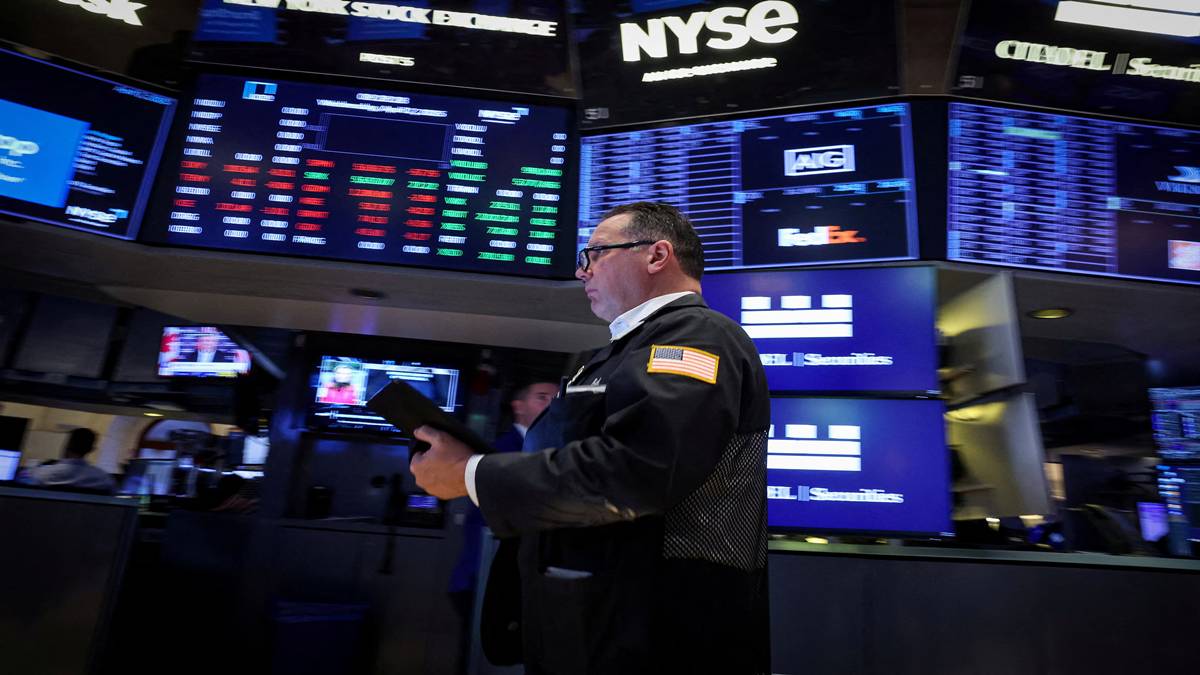On Tuesday, U.S. stock markets experienced a slight decline, reversing earlier gains as lingering worries about President Donald Trump’s trade strategies weighed heavily on investor sentiment. The major indexes closed with modest losses: the S&P 500 fell by 0.08%, the Dow Jones Industrial Average dropped 0.20%, and the Nasdaq slipped 0.09%.
Decline in Nvidia Shares: A Major Factor
As investors looked ahead to Wednesday, futures indicated a challenging start. The Dow Jones futures plummeted by 170 points, while S&P 500 futures and Nasdaq futures fell by 45 and 250 points, respectively. The significant drop in Nasdaq futures was largely driven by an alarming 6% fall in Nvidia shares during after-hours trading. The tech giant announced a hefty $5.5 billion quarterly charge due to export restrictions affecting its H20 graphic processing units for markets like China, creating waves of caution across the tech landscape.
Earlier in the week, the stock market had shown promise. The Dow surged by as much as 400 points before reversing its trajectory, ultimately closing down by 150 points. Both the S&P 500 and Nasdaq also finished below the zero line.
Bank Earnings: A Mixed Bag
In contrast, shares of Bank of America and Citigroup saw positive movement after both institutions reported their earnings, marking the conclusion of the recent bank earnings season. While Wall Street’s trading divisions benefited from the recent volatility caused by tariffs, concerns linger that ongoing trade tensions and a cooling global economy could negatively impact other business sectors.
Boeing Faces Challenges from China
Meanwhile, Boeing shares took a hit, dropping by 2.4% after news broke that Chinese airlines have been instructed to suspend new purchases of Boeing aircraft. This development marks yet another escalation in the ongoing U.S.-China trade conflict and poses additional challenges for one of America’s leading manufacturers.
Trump’s Call to China
In a recent statement, President Trump emphasized that China should approach the U.S. to negotiate a trade agreement aimed at alleviating tariffs, underscoring the reliance of China on American consumers. “The ball is in China’s court,” Trump remarked during a White House briefing, indicating a clear stance on the ongoing trade negotiations.
European Market Reactions
Across the Atlantic, European markets saw a sharp downturn in luxury stocks following disappointing sales figures from LVMH, which highlighted the impact of escalating trade tensions and declining demand from China. However, global automotive manufacturers like Toyota and Hyundai reported gains, reflecting a different trend than that seen in the U.S. auto sector.
The Ongoing Trade Tensions
The market’s recent pullback underscores a pervasive unease among investors regarding trade tensions and specific hurdles in sectors like technology and industrials. This fragile sentiment persists despite recent attempts at recovery.
Moreover, the U.S. government has launched new investigations into potential tariffs targeting pharmaceutical and semiconductor imports, adding further uncertainty to a market already shaken by reciprocal trade measures.
In summary, as the landscape evolves, investors remain cautious, closely monitoring developments in trade relations and their potential impacts on various sectors.











